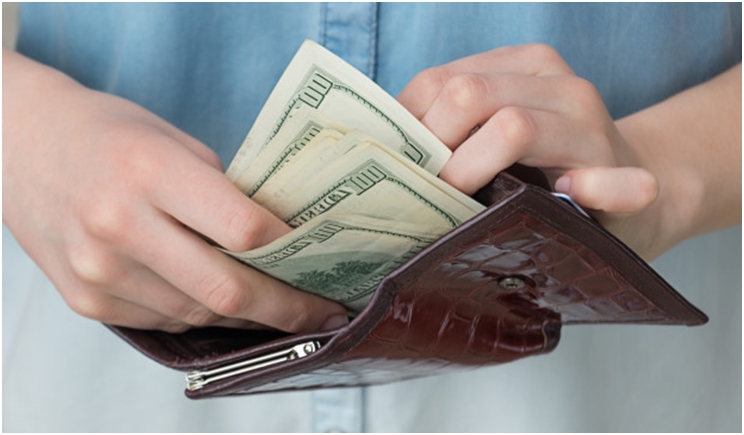
As dental practices have been forced to halt business as usual during the pandemic crisis, there are still bills that must get paid if you’re the business owner. Costs like payroll, benefits, utilities, rent, mortgage, and outstanding debts can’t go ignored, despite what’s happening in the world around us.
Without revenue coming in, this is understandably unnerving for many dentists. However, the Coronavirus Aid, Relief, and Economic Security (CARES) Act has made new resources available through the Small Business Administration (SBA) to qualifying applicants who need money to cover expenses.
Fund-Ex Solutions Group is one of just 14 non-bank SBA lenders in the country actively helping small business owners like dentists understand the best option for their needs.
If You Need a Way to Pay Staff
The Paycheck Protection Program (PPP) loans help business owners maintain their payroll at large, which includes wages, tips, vacation pay, benefits, retirement contributions, and some taxes. Borrowers can get 2.5 times their average monthly payroll costs or up to $10 million.
While payroll is the defined borrowing base, the use of funds is a little different. You also can actually use a portion of the loan to put toward mortgage interest, rent, and utilities.
At the end of the program, or at the end of eight weeks from the time you get your money, you can apply for loan forgiveness. However, you must confirm you used at least 75% of the loan toward payroll expenses for an eight-week period. The balance then can be applied toward eligible mortgage interest, rent, and utilities.
So long as the funds are used in accordance with program guidelines, PPP loans can be forgiven in full for up to eight weeks of payroll and other eligible expenses. If not totally forgiven, no payments will be due for at least six months.
Apply if: You need to keep your people on staff and cover other essential costs.
If You Have (or Need) a Loan, but Can’t Make Monthly Payments
The government, via the CARES Act, will make the next six payments on all existing loans—SBA 7(a) loan, 504 loan, or microloan—starting with April payments. This offers significant relief to virtually all current SBA loan borrowers.
Further, any new SBA loan funded before September 27, 2020, will have the first six payments covered by the SBA. If you’re focused on planning ahead, this could be a great option to help your business get back up and running.
Apply if: You need long terms, large amounts, and no payments for half a year.
If You Need Immediate Cash
The SBA has an existing Economic Injury Disaster Loan that is available to business owners in disaster-declared areas. Now that we’re facing a national pandemic, every business owner in the country can apply for an EIDL if they have been economically injured by coronavirus. The maximum amount is $2 million.
As part of the CARES Act, the SBA now offers an Emergency Economic Injury Disaster Loan (EEIDL), which provides approved applicants with a $10,000 cash advance within three days. This is a grant and doesn’t need to be repaid under any circumstance. Business owners can use it toward employees (payroll or sick leave), production costs (due to supply chain disruptions), or business obligations (debt, rent, mortgage).
If you apply for an EEIDL, you can still apply for the PPP, but the PPP forgiveness amount will be reduced by the amount of the EEIDL.
Apply if: You need immediate cash and have been impacted by the coronavirus crisis.
If You Need Funding, but Don’t Want (or Don’t Qualify for) an SBA Loan
Of course, SBA loans aren’t the only option for dentists looking for funding. Business loans can help cover your business needs, while a personal loan can help you protect personal assets and work toward your personal goals.
Lenders like Bankers Healthcare Group are offering borrowers assistance by adjusting loan terms to help dentists. Whichever lender you choose, be sure you have clarity on amounts available, how fast you can get the funding, if you can get deferred payments, and if there are any penalties. Funding should be designed to help borrowers through this challenging time, so be sure to do your due diligence in choosing the best financing option for your business.
When this pandemic is over, dental practices will reopen and can get back to business. In the meantime, dentists should explore financial programs available, should they need help to get through this crisis and to help set themselves up for future success.
Mr. Schmidt is CEO of Fund-Ex Solutions Group, one of 14 non-bank SBA lenders. Visit fundexsolutions.com for more information. FSG is a wholly-owned subsidiary of Bankers Healthcare Group.
Related Articles
How to Create a Resilient Practice During Tough Times
How to Market Your Practice and Keep Your Patients During the Epidemic
How Your Practice Can Survive the Pandemic


